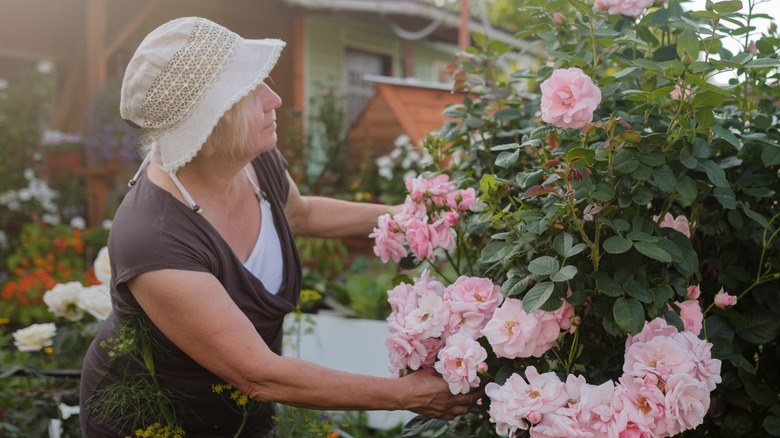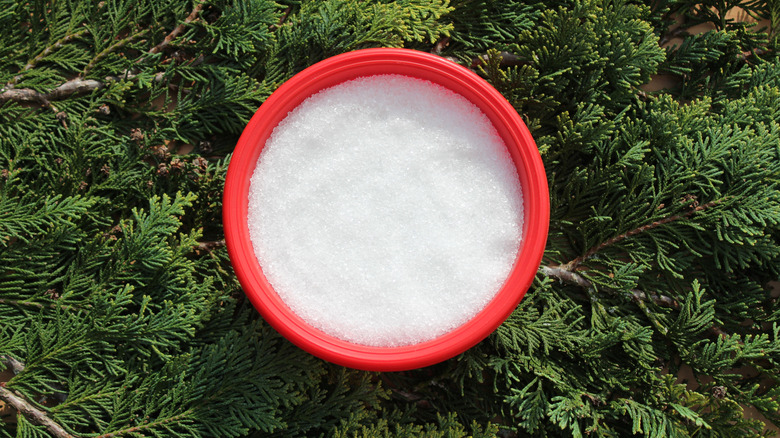Gardeners Swear By Epsom Salt For Their Roses, But It May Not Be The Best. Here's Why
Roses (Rosa spp.) are some of the most popular types of flowering plants for the home garden. There are at least 6,000 cultivars to choose from, which are available in a variety of colors and sizes, too. Roses can also be planted in USDA hardiness zones 5 to 11, with many gardeners choosing to grow the plants across much of the continental U.S. There are even practical tips and tricks for growing roses from seeds, too. Despite their popularity, though, roses are not always the easiest plants to grow. One common issue is a lack of nutrients, which some gardeners choose to remedy with Epsom salt. However, there are some significant downsides to consider before utilizing this home remedy for your own roses.
Ideally, the soil pH for your roses ought to fall between 6 and 6.5. When the acidity is outside of this range, they may not be able to take up nutrients efficiently. In particular, a soil pH of 6.5 or greater could result in your roses being deprived of iron, magnesium, nitrogen, phosphorus, and other important minerals. To help remedy this, some gardeners choose to add magnesium sulfate (also known as Epsom salt) to the soil. However, it's important to understand what Epsom salt is and what it purportedly does for your garden before jumping on the bandwagon. The problem is that unless you test for the nutritional composition in your soil, you could be inadvertently providing roses with minerals they do not actually need. In fact, roses are more prone to iron and nitrogen deficiencies, rather than magnesium.
The downsides to using Epsom salt for roses
Magnesium is only needed in small quantities by plants, including roses. While some gardeners swear by the benefits of Epsom salts for their roses, the practice of routinely adding the product is generally not recommended by experts. Among these include multiple University Extensions as well as the American Rose Society. Too much magnesium can damage roses over time, leading to symptoms such as yellowing and burning of their leaves. This is likely attributed to decreased water absorption from the roots due to excess salt. It can even prevent the uptake of calcium in your plants, as well. The risk of excess salt may be greater if you live in an area where the soil already has a higher salt content, such as near coastal regions.
The fact is that most plants don't need Epsom salt in your garden. In such cases, good-quality soil along with routinely added organic matter can help keep your roses in good health without the need for Epsom salt. A true magnesium deficiency can cause reduced leaf sizes and yellowing of foliage between leaf veins, often being the first key symptoms of this problem. This doesn't mean you should automatically add Epsom salt to the soil, though. You must first confirm that your roses do indeed lack magnesium with a soil test kit. Home testing is arguably the quickest and most affordable option, but some extension offices may also offer more reliable testing if available in your area. If you do decide to use Epsom salt for your roses, continue testing the soil regularly, and never apply the product to the plant directly.

